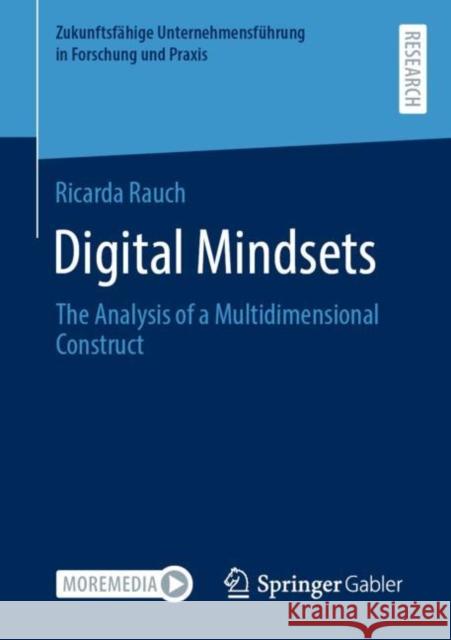Digital Mindsets: The Analysis of a Multidimensional Construct » książka
Digital Mindsets: The Analysis of a Multidimensional Construct
ISBN-13: 9783658397524 / Angielski / Miękka / 2022 / 200 str.
Digital technologies change employees' working environments, methods and behaviours profoundly and are challenging employees' very personal beliefs, attitudes and identities. Digital mindsets provide insight into an individual's beliefs, attitudes and assumptions related to digitalisation. Strongly influencing employee behaviour, they play a major role in an organisation’s digital transformation. Building on research on mindsets, cognition and digitalisation, Ricarda Rauch analyses digital mindsets both conceptionally and empirically. Within one qualitative and two quantitative studies, she explores the personal meaning of digitalisation and derives four central digital mindsets. Her research helps to better understand the extent to which digitalisation impacts employees, explains their subsequent behaviour, and proposes beneficial employee development measures. The thesis reveals relevant implications for organisational researchers, HR practicioners and management alike.
Digital technologies change employees' working environments, methods and behaviours profoundly and are challenging employees' very personal beliefs, attitudes and identities. Digital mindsets provide insight into an individual's beliefs, attitudes and assumptions related to digitalisation. Strongly influencing employee behaviour, they play a major role in an organisation’s digital transformation. Building on research on mindsets, cognition and digitalisation, Ricarda Rauch analyses digital mindsets both conceptionally and empirically. Within one qualitative and two quantitative studies, she explores the personal meaning of digitalisation and derives four central digital mindsets. Her research helps to better understand the extent to which digitalisation impacts employees, explains their subsequent behaviour, and proposes beneficial employee development measures. The thesis reveals relevant implications for organisational researchers, HR practicioners and management alike.











